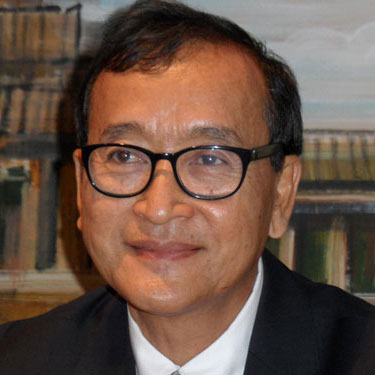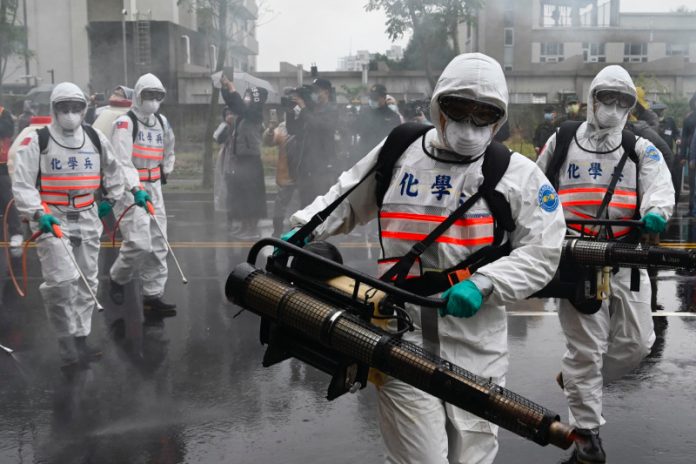There is probably not a national leader anywhere in the world who thinks his country’s people are stupid enough to believe that coronavirus spares people of a certain nationality.
But that is exactly what Prime Minister Hun Sen has asked Cambodians to believe. On February 18, Hun Sen said that there would only be a coronavirus epidemic in Cambodian on February 31 – that is to say never.
This followed the comment from his health minister Mam Bun Heng who said that the virus would be unable to spread in Cambodia because it’s too hot.
These reactions were not just initial missteps in the face of a novel danger. Cambodia’s response to coronavirus has obviously been driven by politics rather than by public health, revealing a mindset that disregards science and common sense. Visitors to Cambodia have been banned from Italy, Spain, France, Germany and the US, with Iran later added to the list. But entry from China, the epicentre of the epidemic, is still allowed.
Hun Sen’s need to keep Chinese trade and investment flowing is paramount. The country is set to lose part of its free trade access to European Union markets in August, and stands to lose more unless there is progress on human and political rights. Hun Sen makes little pretence that the risks to the public are more important than keeping China, his last major international ally, onboard.
Arbitrary arrests of activists opposed to government corruption have also continued, with the regime apparently counting on coronavirus to divert international attention. A Cambodia National Rescue Party activist Khut Chroek was arrested on March 10 and there has been no news of him since. Meanwhile, a group of four environmental activists investigating illegal logging in the Prey Lang forest, led by Ouch Leng, was arrested on March 13.
Though the four have since been released, they remain under investigation as suspects and can be re-arrested at any time.
Learning from SARS
There are positive examples on how to contain the virus which can still be followed. Taiwan, just 81 miles away from mainland China, where 850,000 of its citizens live, is a case in point. Experts expected Taiwan to have the second-largest number of cases of coronavirus outside China.
Since the SARS outbreak of 2003, the country has built up its public health infrastructure to make sure it was ready next time. Taiwan set up its National Health Command Center in 2004. As soon as Taiwan learned from the World Health Organization (WHO) that there was an unknown new illness in China, health workers were sent to board planes from Wuhan and check passengers for symptoms before allowing entry.
This was quickly expanded to include anyone who had traveled to Wuhan in the previous two weeks. Taiwan integrated its national health insurance database with customs and immigration records to compare travel histories with reported symptoms. Those identified as high risk were quarantined.
All this was done as the outbreak in mainland China coincided with the Chinese New Year, the busiest time for travel. The essence lay in preparation and speed of execution. These measures were combined with consistent public education. Taiwan’s vice president, an epidemiologist, made public service announcements on when and where to wear a mask, the importance of washing hands, and the dangers of hoarding masks. The result was that as of March 16, Taiwan had only 59 coronavirus cases.
Hun Sen, meanwhile, was criticising the press for supposedly exaggerating the dangers – fake news, he said, was a bigger risk than the virus itself. He even threatened to throw journalists wearing face masks out of one of his press conferences. Cambodia now officially has 24 confirmed coronavirus cases. It is likely that the number is greatly understated – the official cases are improbably concentrated among foreigners, with Cambodians themselves somehow managing to avoid infection.
An opinion poll by the Taiwan Public Opinion Foundation on February 17-18 gave the country’s minister of health an approval rating of more than 80% for his handling of the crisis, with the president getting approval rating close to 70%. When will there be an opinion poll of any kind in Cambodia? Will Hun Sen ever allow people to say what they think about his handling of coronavirus?
Even if coronavirus is globally brought under control in coming months, it won’t be completely eliminated and new outbreaks are likely. That means even now, it’s still not too late to learn from the Taiwanese example. Cambodia must start seeing the virus as a danger to public health, rather than an opportunity to curry favour with Beijing.
It should follow the lead of Taiwan in establishing a national command centre to manage the response to such health emergencies and using modern technology to identify high-risk entrants. Cambodia also needs to reduce wasteful and pointless military spending – the country does not face a military threat. The money saved should be used to build up a public health service capable of dealing with such a crisis in the future.
The views and opinions expressed in this article are those of the author and do not necessarily reflect the official policy or position of The Geopolitics.

Sam Rainsy, Cambodia’s finance minister from 1993 to 1994, is the co-founder and acting leader of the opposition Cambodia National Rescue Party (CNRP).


